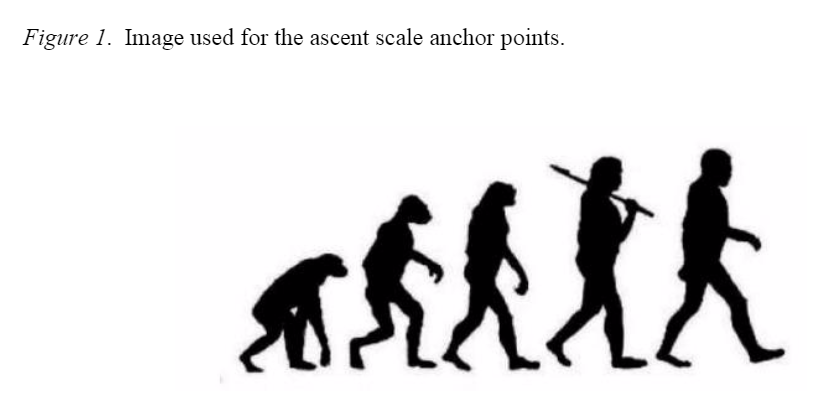Two U.S. psychologists interviewed nearly 450 people who say they identify with the so-called “alt-right” to try to delve into their mindset.

What they found was a group of people who reported high levels of aggression; exhibited extreme levels of bias to others who are not white or male, and blatantly dehumanized racial minorities.
Members of the alt-right — a loose collection of far-right political groups that include white nationalists, and neo-Nazis — descended on Charlottesville, Va. last weekend carrying torches, giving Nazi salutes, and chanting “Jews will not replace us!” Violence ultimately exploded in the streets and led to a white supremacist plowing a car into a crowd of counter-protesters, killing one woman.
The alt-right movement has been in the spotlight for more than a year, coinciding with the election of U.S. President Donald Trump, who defended the far-right after the tragedy in Virginia.
READ MORE: Are people more open about being racist? Some blame the political climate
Psychologists Patrick Forscher, from the University of Arkansas, and Nour Kteily, from Northwestern University, set out to build a psychological profile of the movement and began by surveying those who support the alt-right.
The results were released on Aug. 9 and are currently in working paper form, meaning they have yet to be peer-reviewed or published in an academic journal. The researchers’ raw data and materials have been posted online.
Forscher and Kteily sampled 447 self-identified members of the so called “alt-right” in an online survey on Amazon’s Mechanical Turk, which offered them a small $3 reward for their time. They compared those results to an online sample of 382 “non-adherents.”
READ MORE: Former white supremacists not surprised by deadly violence
“Alt-right adherents were much more distrustful of the mainstream media and government; expressed higher ‘dark triad’ traits, social dominance orientation, and authoritarianism,” the researchers found.
Here is a more in-depth look at some of the results from the study conducted in April.
‘Blatant dehumanization of racial minorities’
- Ex-cop accused of slaying 2 women, abducting child, kills himself in police chase
- U.S. is sending Ukraine longer-range weapons with new aid. Why it matters
- Four injured after military horses break loose, stampede in London, U.K.
- Dolphin washes up on beach with bullets lodged in spine, heart and brain
One the most troubling findings of the survey was how supporters saw other religious or ethnic groups as being less than human.
Forscher and Kteily measured dehumanization by asking participants to rate groups on a scale from 0 to 100, with zero being not human and 100 being fully human. They asked respondents to rate groups using a diagram that depicts the purported biological evolution of humans from quadrupedal ancestors to show how ‘evolved’ they perceive people or groups.
At the bottom, alt-right supporters (on average) rated Democrats at roughly 60 out of 100, journalists at roughly 59, Nigerians at 59, feminists at 57, Muslims at 55, and Hilary Clinton at 55. They also rated black people at around 65, Mexicans at 68, and Jews at 73.
White people were rated at nearly 92 out of 100 by alt-righters, while Americans and men were around 88.
Meanwhile, the non-alt-right adherents scored all groups in the high 80s and 90s with more instances of people rating groups 100.
“The characteristics of the alt-right sample are brought into still starker relief when compared to the non-alt-right sample,” the study said. “The alt-right sample reported much higher levels of dehumanization of religious and ethnic groups, as well as the alt-right’s political opposition groups.”
LISTEN: Poltical psychologist Dr. Bart Rossi speaks with 630 CHED’s Ryan Jespersen about the psychology of racism
Akwasi Owusu-Bempah, assistant professor of sociology at the University of Toronto, said the results of the study are concerning as higher levels of dehumanization can lead to an increased potential for inflicting violence on other groups.
“We dehumanize the other group because we don’t have the capacity to inflict on a mass scale to other human beings,” Owusu-Bempah said.
“Those that dehumanize are more likely to perceive those groups as guilty, as deserving of punishment as deserving of violence.”
The Dark Triad
When researchers looked at the most common personality trait among those on the alt-right they found relatively higher levels of what is known in psychology as the “dark triad” — psychopathy, narcissism, and Machiavellianism – a trait where a person uses manipulation, deception, and exploitation to achieve their goals.
The study suggests that alt-right supporters could be separated into two subgroups: one more populist and anti-establishment and the other “more supremacist and motivated by maintaining social hierarchy.”
READ MORE: ‘This is Nazi f****** America!’ North Carolina woman confronts neighbour over Swastika flag
They also found alt-right adherents reported high levels of authoritarianism and social dominance orientation — meaning the belief in social hierarchies.
Worried about the economy?

Following the 2016 U.S. election, many on the alt-right were portrayed as being motivated by concerns about changes in the American economy.
The survey used questions from the Pew Research Center and asked participants to assess their personal economic situation on a scale from 1 (very bad) to 4 (very good). The researchers found relatively similar levels of closeness in attitudes around the economy between the two groups.
READ MORE: Best moments from Donald Trump’s meandering, bizarre presidential announcement
“We found little evidence that this populism extended to economic issues: alt-right supporters were more optimistic about the current and future states of the economy than non-supporters,” the study said. “These results suggest that members of the alt-right feel that the social positions of their favoured groups are under threat, consistent with theoretical accounts describing a conservative shift in response to status-anxiety.”
Owusu-Bempah said the administration of Barack Obama signalled to some that other groups including black Americans were gaining political power and Trump’s election was a response to that.



















Comments